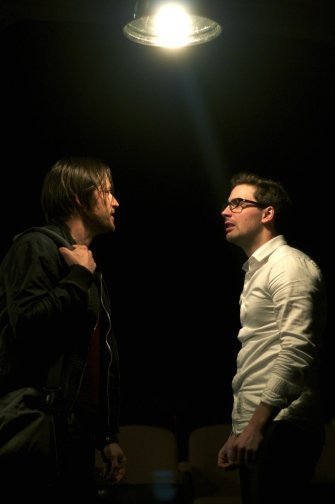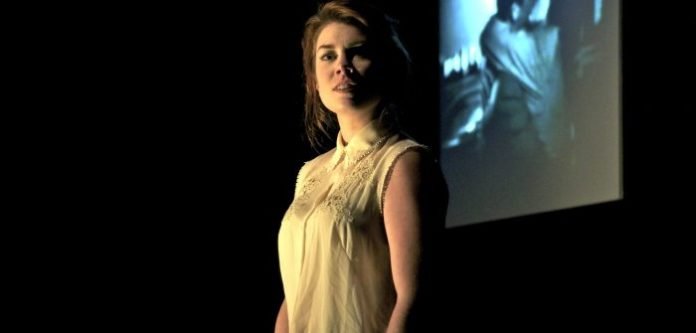Perhaps because the characters in Brendan Gall’s Wide Awake Hearts are so self-centred, trying to relate to any of them was a lesson in futility. And while a selfish unlikability isn’t necessarily a recipe for a bad script, in Gall’s blurred world, there is no easy way in for an audience that can’t care for its characters.
Wide Awake Hearts tells the story of four people, identified simply as A, B, C and D, working on an independent film. The movie’s screenwriter (A) casts his wife (B) in his latest film and then hires his best friend (C) to play her lover. As the writer suspects his wife and best friend are lovers in real life, his jealousy simmers, and to add to the tension, he replaces the film’s editor with (D), who just happens to be the current girlfriend of his best friend.
While it may sound complicated, Gall does manage to set the premise up quite clearly, and the sexual, physical and emotional frenzy that should be created by these interlocking relationships is, on the surface, an exciting device. But it never quite gets to where it wants to go. Where things get complicated is in the meta-blurring of lines between the film world and the reality of Gall’s characters. Gall flip-flops between those two worlds to the point where at times, we don’t know where one ends and the other begins. One supposes that may be part of his point, though, as it speaks to the inability of some to separate what they see on screen from the actors who play them. As we are left at times trying to discern the fact from fiction, though, we are never allowed to know these people as flesh and blood.

The blurring of worlds also extends to Gall’s writing. Everyone, no matter which world they are currently residing in, talks as if they just stepped onto a movie set: “Stop talking in punchlines,” one says. “Stop giving me setups” is the unhesitant answer. Even in the sexually charged moments of the play, and there are many, Gall’s foreplay is words.
The four actors here (Sean Harris Oliver, Genevieve Fleming, Robert Salvador and Claire Hesselgrave) are trying hard, despite the playwright giving them little work below the surface. Salvador is particularly watchable as he embraces Gall’s love of words, and even the simplest “I have missed you” and “I’m sorry” are delivered with style. Oliver has one of the toughest jobs of the night, but his man-on-the-edge walks that line beautifully until it finally erupts in a bizarre scene that may as well have been ripped the current headlines. Fleming plays both sides of her infidelity with skill, and her final scene with Salvador is in itself a lesson on acting. Hesselgrave, who arguably has the most believable of the characters, is spot-on and helps prove that action doesn’t always have to mean motion.
The creative team, including director Brian Cochrane, embraces the usually difficult Little Mountain space with one of the better set-ups inside this odd little venue. Given the blurring of the cinematic and life in Gall’s script, it was somehow reminiscent of the Dogme 95 manifesto, both on stage and in Eric Chad’s projections. There is also a delightful noir feel to the proceedings with its many shadows.
Despite its fiery passion, I still left the theatre last night feeling cold. Thank goodness they had the good sense to turn on the parabolic heaters.

